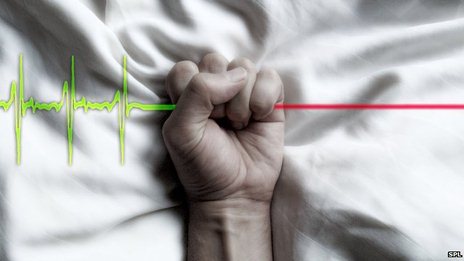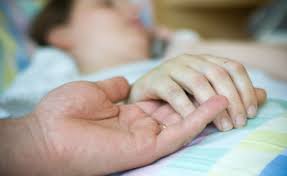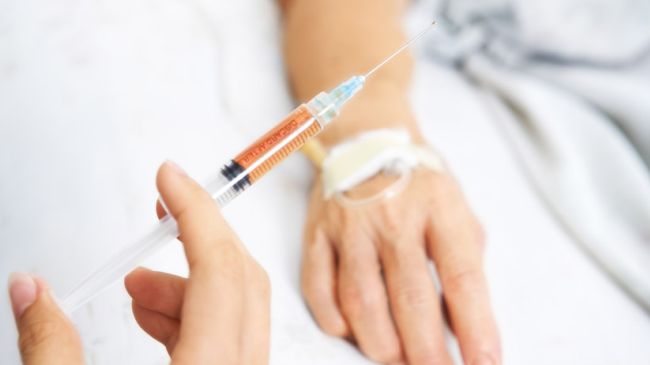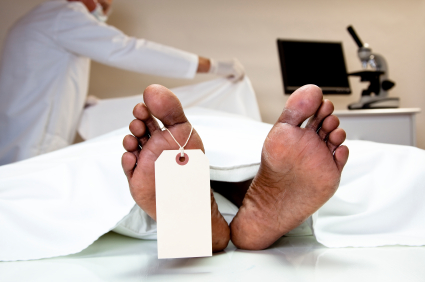So, today I’m going to write about a rather contentious argument, which relates to Euthanasia or mercy killing. The term “euthanasia” is brought from the Greek word “euthanize” meaning “well death”. In recent years, there has been crying debate round the globe over the issue, whether euthanasia is legalized. Before going ahead on this issue, it is desirable here to first be introduced with this terminology.
Euthanasia is basically killing of patients by doctors at the instance of the patient in order to free him/her of excruciating pain or from terminal illness. Euthanasia may be classified into various subtypes too. But, the question at hand is whether or not should Euthanasia be legalized in other countries across the globe. Barely a few countries around the world give the patients rights to choose euthanasia as an option when life for them becomes so torturous and unworthy that the only exquisite left would be killing themselves voluntarily because that seems far better than living in extreme laceration. People have cited quite a few different opinions on whether or not should Euthanasia be legalized ! Euthanasia is a physician or others ‘killing’ of a suffering patient in attempt to hasten death and alleviate pain. In the game of life and death: life is the most obvious answer one would think. This is not always the case, so euthanasia or assisted suicide is an extremely controversial topic of today. It has many wondering if death really is the answer is some cases. What if one finds themselves terminally ill, in maximal pain, and no longer wishes to waste their life withering away in a hospital bed. Due to these reasons, certain forms of assisted suicide should be considered legal.
Euthanasia is advantageous in many more ways than disadvantageous. It can help a patient in numerous ways: it can stop the daily torment and cause an impending death to come sooner and thus save a lot of heartache and pain. It is a fact that there are many diseases out there that can cause a patient excruciating amount of pain. For instance, blood cancer can include symptoms such as bone fractures, repeated infections, and persisting bruises. If a patient tries every possible way to fight a disease but hits a dead end, it will simply be better to meet death in a dignified manner than die in a hospital bed not recognizing the person you’ve withered away to. Life is hard to live with any sort of terminal illness, in many cases death may be the better answer.
Not letting people practice Euthanasia goes against the freedom promised in America. Every person in this country has rights: a right to speech, learn, love, live, so they should have a right to die as well. If a terminally ill person wants to avoid excruciating pain and wants to end their life in a dignified manner, it is implied in the concept of ordered liberty. The right to exercise euthanasia is something one can choose for themselves and the courts should have as much a say in this matter as they do in matters such as marriage, family relationships, procreation, and the refusal or termination of life-saving medical treatment. We are said to live in a free country where we can make our own decisions, but are we really free if we cannot even make the choice to live or not live our own lives.
The ideas against Euthanasia or assisted suicide are flawed in several different ways. First of all, the Hippocratic Oath very clearly states: “I will neither prescribe nor administer a lethal dose of medicine to any patient” Although, it never says anything about using passive Euthanasia which means withholding common treatments such as antibiotics and other treatments for the continuance of life. Also, the Oath has been changed many times throughout history so what is different now. Before, the oath prohibited the cutting open of a patient, but now surgery is used worldwide. The oath can be altered to fit the reality of the time, Second of all, in a society of people obsessed with the cost of health care, Euthanasia is regarded with the dangers of a slippery slope. Arguments with the “slippery slope” state that if voluntary euthanasia is legalized, eventually non-voluntary euthanasia will be legalized as well. The idea of slippery slope does not stand strong with facts because there is nothing that corroborates the idea that legalizing one type of Euthanasia will lead to the legalization of all types of Euthanasia. All of the disadvantages against this practice are controversial and can be rebutted.
In the end, death is a tangible option for those who are suffering and do not see life as an option any longer. Many see it as inhumane and religiously wrong, but we must see it from the eyes of the patient. We are promised rights in this country, and the right to die should be right up there with the right to live. Due to these reasons, certain forms of assisted suicide should be considered legal.
Getting in touch with the forms of Euthanasia, They may be divided into the following :-
Active and passive euthanasia;
In active euthanasia a person directly and deliberately causes the patient’s death. In passive euthanasia they don’t directly take the patient’s life, they just allow them to die.
This is a morally unsatisfactory distinction, since even though a person doesn’t ‘actively kill’ the patient, they are aware that the result of their inaction will be the death of the patient.
Active euthanasia is when death is brought about by an act – for example when a person is killed by being given an overdose of pain-killers.
Passive euthanasia is when death is brought about by an omission – i.e. when someone lets the person die. This can be by withdrawing or withholding treatment:
- Withdrawing treatment: for example, switching off a machine that is keeping a person alive, so that they die of their disease.
- Withholding treatment: for example, not carrying out surgery that will extend life for a short time.
Traditionally, passive euthanasia is thought of as less bad than active euthanasia. But some people think active euthanasia is morally better.
Voluntary and involuntary euthanasia;
Voluntary euthanasia occurs at the request of the person who dies.
Non-voluntary euthanasia occurs when the person is unconscious or otherwise unable (for example, a very young baby or a person of extremely low intelligence) to make a meaningful choice between living and dying, and an appropriate person takes the decision on their behalf.
Non-voluntary euthanasia also includes cases where the person is a child who is mentally and emotionally able to take the decision, but is not regarded in law as old enough to take such a decision, so someone else must take it on their behalf in the eyes of the law.
Involuntary euthanasia occurs when the person who dies chooses life and is killed anyway. This is usually called murder, but it is possible to imagine cases where the killing would count as being for the benefit of the person who dies.
Indirect euthanasia;
This means providing treatment (usually to reduce pain) that has the side effect of speeding the patient’s death.
Since the primary intention is not to kill, this is seen by some people (but not all) as morally acceptable.
A justification along these lines is formally called the doctrine of double effect.
Assisted suicide;
This usually refers to cases where the person who is going to die needs help to kill themselves and asks for it. It may be something as simple as getting drugs for the person and putting those drugs within their reach.
Passive euthanasia is legal in India. On 7 March 2011 the Supreme Court of India legalized passive euthanasia by means of the withdrawal of life support to patients in a permanent vegetative state.The decision was made as part of the verdict in a case involving Aruna Shanbaug, who has been in a vegetative state for 37 years at King Edward Memorial Hospital. The high court rejected active euthanasia by means of lethal injection. In the absence of a law regulating euthanasia in India, the court stated that its decision becomes the law of the land until the Indian parliament enacts a suitable law. Active euthanasia, including the administration of lethal compounds for the purpose of ending life, is still illegal in India, and in most countries.
Below I’m citing down the case that legalized passive Euthanasia in India. ;
Aruna Shanbaug case:
Aruna Shanbaug was a nurse working at the KEM Hospital in Mumbai on 27 November 1973 when she was strangled and sodomized by Sohanlal Walmiki, a sweeper. During the attack she was strangled with a chain, and the deprivation of oxygen has left her in a vegetative state ever since. She has been treated at KEM since the incident and is kept alive by feeding tube. On behalf of Aruna, her friend Pinki Virani, a social activist, filed a petition in the Supreme Court arguing that the “continued existence of Aruna is in violation of her right to live in dignity”. The Supreme Court made its decision on 7 March 2011.The court rejected the plea to discontinue Aruna’s life support but issued a set of broad guidelines legalizing passive euthanasia in India. The Supreme Court’s decision to reject the discontinuation of Aruna’s life support was based on the fact that the hospital staff who treat and take care of her did not support euthanizing her.
Supreme Court decision:
While rejecting Pinki Virani’s plea for Aruna Shanbaug’s euthanasia, the court laid out guidelines for passive euthanasia.[According to these guidelines, passive euthanasia involves the withdrawing of treatment or food that would allow the patient to live.Forms of active euthanasia, including the administration of lethal compounds, legal in a number of nations and jurisdictions including Belgium and the Netherlands, as well as the US states of Washington and Oregon, are still illegal in India.
Elsewhere in the world active euthanasia is almost always illegal. The legal status of passive euthanasia, on the other hand, including the withdrawal of nutrition or water, varies across the nations of the world. As India had no law about euthanasia, the Supreme Court’s guidelines are law until and unless Parliament passes legislation. India’s Minister of Law and Justice, Veerappa Moily, called for serious political debate over the issue. The following guidelines were laid down:
- A decision has to be taken to discontinue life support either by the parents or the spouse or other close relatives, or in the absence of any of them, such a decision can be taken even by a person or a body of persons acting as a next friend. It can also be taken by the doctors attending the patient. However, the decision should be taken bona- fide in the best interest of the patient.
- Even if a decision is taken by the near relatives or doctors or next friend to withdraw life support, such a decision requires approval from the High Court concerned.
- When such an application is filled the Chief Justice of the High Court should forthwith constitute a Bench of at least two Judges who should decide to grant approval or not. A committee of three reputed doctors to be nominated by the Bench, who will give report regarding the condition of the patient. Before giving the verdict a notice regarding the report should be given to the close relatives and the State. After hearing the parties, the High Court can give its verdict.
Disclaimer:The materials on this website are provided for informational purposes only and do not constitute legal advice. These materials are intended, but not promised or guaranteed to be current, complete, or up-to-date and should in no way be taken as an indication of future results. Transmission of the information is not intended to create, and the receipt does not constitute, an attorney-client relationship between sender and receiver. The newsletters and articles on this website are offered only for general informational and educational purposes. They are not offered as and do not constitute legal advice or legal opinions. You should not act or rely on any information contained in this website without first seeking the advice of an attorney.




Nice Blog, thanks for sharing this kind of information.
LikeLike
Thanks so very much.!
LikeLike
Lovely writing and great perspective! Nicely done 🙂
LikeLiked by 1 person
So is yours!
And I must say, lovely display!
LikeLiked by 1 person
Thank you! Happy to hear this 🙂 Have a great Sunday!
LikeLiked by 1 person
You too!
LikeLiked by 1 person
Excellent post.
LikeLiked by 1 person
Thanks a lot!
LikeLike
Reblogged this on I'm LissaBreen – Welcome To My World (My Life, My Way&My Destiny).
LikeLike
Hello Hardi,
The Law is about bringing order to life, it is on very loose footing when it attempts death. These discussions are informative, but I think registering a living will as a requirement for graduating from high school would show more conclusively where people are at with end of life.
I also see Nature taking care of end of life for the most part, even though our nature requires us to interfere to certain degrees. In my 20 + years as a RN I’ve often seen family members who want “everything done” as being the least attached to the dying person…in other words their guilt drives doing more. Our tendency to interfere out of guilt or ego hits a brick wall when confronted with cost. Require the high school graduates to “Bank” into an end of life fund – higher contributions for those who register a more “do everything” death plan.
Now tell family members, lawyers, physicians or other superheroes who want to “do everything” to divert a percentage of their personal Bank towards the death situation they want to spend money on (when the dying person has made less of a death bank) and you will see a very different side of human nature.
There is no reason Hospices / hospice care should cost money beyond average death bank contributions…provided the personnel who deliver hospice care are not interfered with by people (who keep their wallets closed) preoccupied with acting unnaturally.
My two cents,
RidicuRyder
LikeLike
I have a painful terminal illness and do not agree. My belief is it is God’s decision when I die. You never know if you kill yourself whether God would have decided to heal you. It has happened. Plus, my belief is when we take our own lives we will go to Hell. I choose to let God decide. I have personally witnessed miraculous healings so I can in fact tell you God can heal you. Anyways, that is how I feel about it.
LikeLike
Thats totally ok, people have different perspectives.
I respect yours.
LikeLiked by 1 person
You’re a great writer. I haven’t been able to read all of your posts yet. Looking forward to reading your other posts.
LikeLiked by 1 person
That’s a nice compliment!
Looking forward to more of your opinions.
LikeLike
:-). Oh, Happy Thanksgiving! Will read some more on Saturday. Have a great day!
LikeLike
You too!
LikeLiked by 1 person
Thank you for this post; I appreciate learning about a controversial issue in an objective manner. I feel we are sovereign entities with the capacity for choosing when our will to death is absolute. This is a tough one to wrestle, but that’s why you’re the lawyer and not me. 🙂
Like
This comment may be called as my favourite till now.
So yes, I’m so glad that I could actually impart some knowledge about this topic.
And thanks for the compliment!
Appreciated too much.
LikeLiked by 1 person
I have been going through your blog, wow I really love your articles. Keep it coming!
LikeLiked by 1 person
Many thanks !
Loved the comoliment, and many more coming your way!
LikeLike
Having had two close family members with terminal cancer, not allowing active euthanasia is IMO the same as torture. Withholding food and water and essentially letting them starve to death is not humane.
When my pets are at the end of their lives, its my last gift of love to have them put to sleep – quick and painless.
Why do we not afford humans this same dignity?
Great post!
LikeLiked by 1 person
Hey!
That was really touchy !
We can just hope for the best and prepare for the worst though.
LikeLike
Also sadly only some countries allow Euthonashia.!
It has its own pros and cons, but at the end if the day the person who suffers endurance knows best how to utilize, if given a chance.
LikeLike
This matter of Euthanasia is very delicate… it’s like a tight rope that needs to be walked really carefully.
Very thought provoking piece.
Also, thanks for the follow. Much appreciated… Your blog is lovely by the way… following right back!
LikeLiked by 1 person
That conment means a lot to me Nekaar.
I throughly appreciate such comments, also I enjoy reading your blog! And yes, being a law student i thought it pretty essential to jott down such sensitive topics since people need to know more of these.
LikeLiked by 1 person
Smart move…
Way to go!
LikeLiked by 1 person
Many thanks !!
LikeLike
I, too, believe a person should have a measure of legal power over their time of death. There need to be extreme circumstances for a person to want to end their life, and nobody can be the judge of how much another person can endure. But the wish for active euthanasia needs to come from the person receiving it. There can be no doubt that it it is their own, express wish to have their life ended. That also means tbere needs to be an investigation into their background that could withstand a criminal investigation, that there was no inception of the wish. If this is neglected, the person providing euthanasia should be liable for man slaughter charges.
LikeLiked by 2 people
Firstly thanks so much, for considering my blog post and giving it a through view.
Secondly, yes! You’re right. Our view points match,
I just tried to jott down a few.
LikeLike
I try to be precise, even when I just pretend to know stuff 😉
LikeLiked by 1 person
Hahah, no it felt like yu pretty much knew everything about Euthonashia indepth 🙂
LikeLike
I do have a grandfather who wants to take his cyanide pill once he can’t take care of himself. He has shown great endurance, as he is turning 92 in April
LikeLiked by 1 person
Oh!
That was something sad to hear ..
LikeLike
Well he hasn’t taken it yet, AFAIK
LikeLiked by 1 person
Sad to hear that he’s planning to though.
LikeLike
What happened to dying with dignity? His idea of dignity is very much dependent on self-reliance.
LikeLiked by 1 person
No, thats not what I meant to say.
The reason I was sad was since he’s had to suffer the endurance.
LikeLike
He will be 92, of course he’s had to suffer. But that kind of endurance is a matter of pride for him.
LikeLiked by 1 person
Like the way he’s getting through with this .
LikeLike